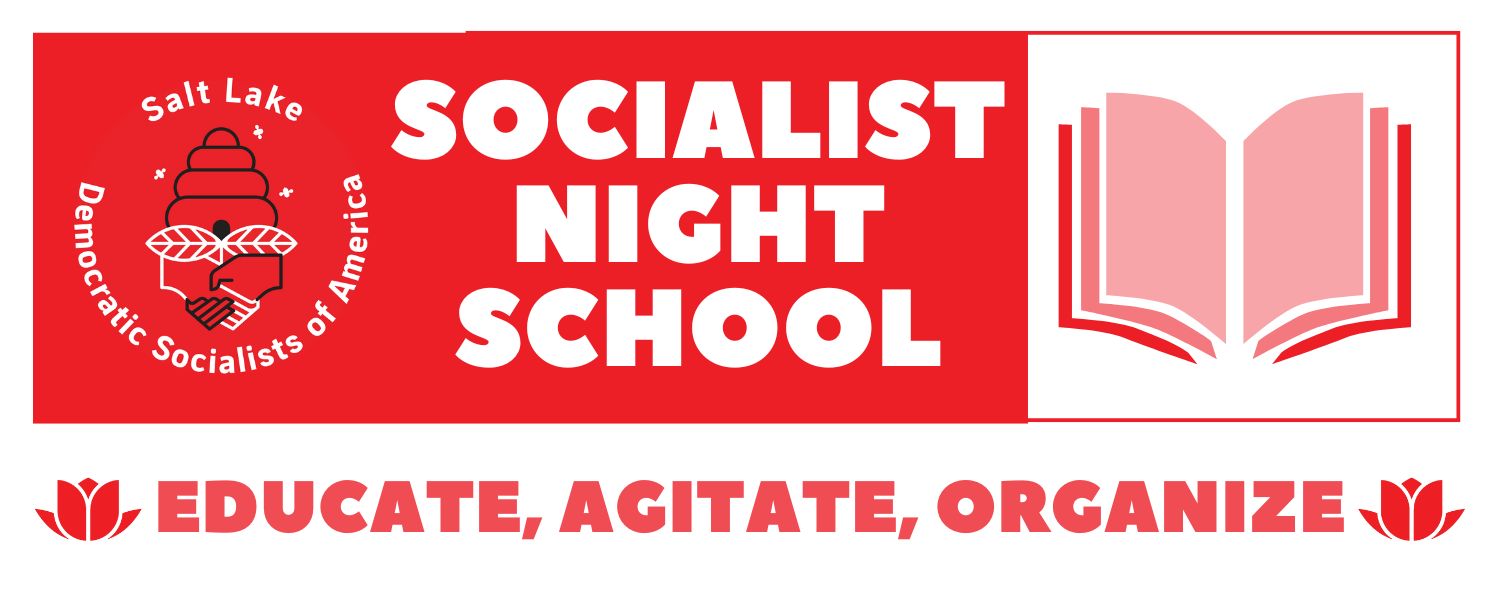Socialist Night School | What is the "Working Class" and "Mass Action?"
Start: Sunday, June 15, 2025•04:00 PM
End: Sunday, June 15, 2025•06:00 PM

This is Salt Lake DSA's Socialist Night School Political Education and Social series! Members are encouraged to attend, non-members are welcome. Socialist Night School is a political education discussion group to increase people’s understanding of socialism as a political horizon, the role of socialists in a mass movement, and how workers can form organizations to pursue socialism. When we develop ourselves politically as members of DSA, we make ourselves not just more personally knowledgable and effective, but elevate our democratic decision making as a whole chapter.
These are discussions, so come ready to contribute your own politics and perspective in a productive, collaborative learning environment. The readings are intended to be accessible and short, generally taking less than an hour to read in total, or a bit more if they're audio/video format.
Readings for this discussion called What is the "Working Class" and "Mass Action?":
Vivek Chibber, Why We Still Talk About the Working Class 10 Min
Peter Camejo, Liberalism, Ultraleftism, or Mass Action 40 Min(Optional) Marx and Engles, Wage Labor and Capital 1 hour
Preamble to discussion:
The “working class” is being rediscovered as an identity in the last few election cycles with the predominance of Bernie Sanders and the squad as a phenomenon in left politics. In this discussion group, we want to deepen that understanding, and emphasize the working class as a social scientific fact, not limited to cultural identity. Then we’ll discuss the reasons why socialists understand the worker as an agent of whole societal change and the ways workers have historically organized to pursue that goal. Class based, socialist politics are fundamentally different from the dominant politics of our society, and therefore can be difficult to understand at first. We hope you come away from this discussion with a better understanding of what these words mean and how you can discover power as a class subject, rather than as an unorganized individual.
